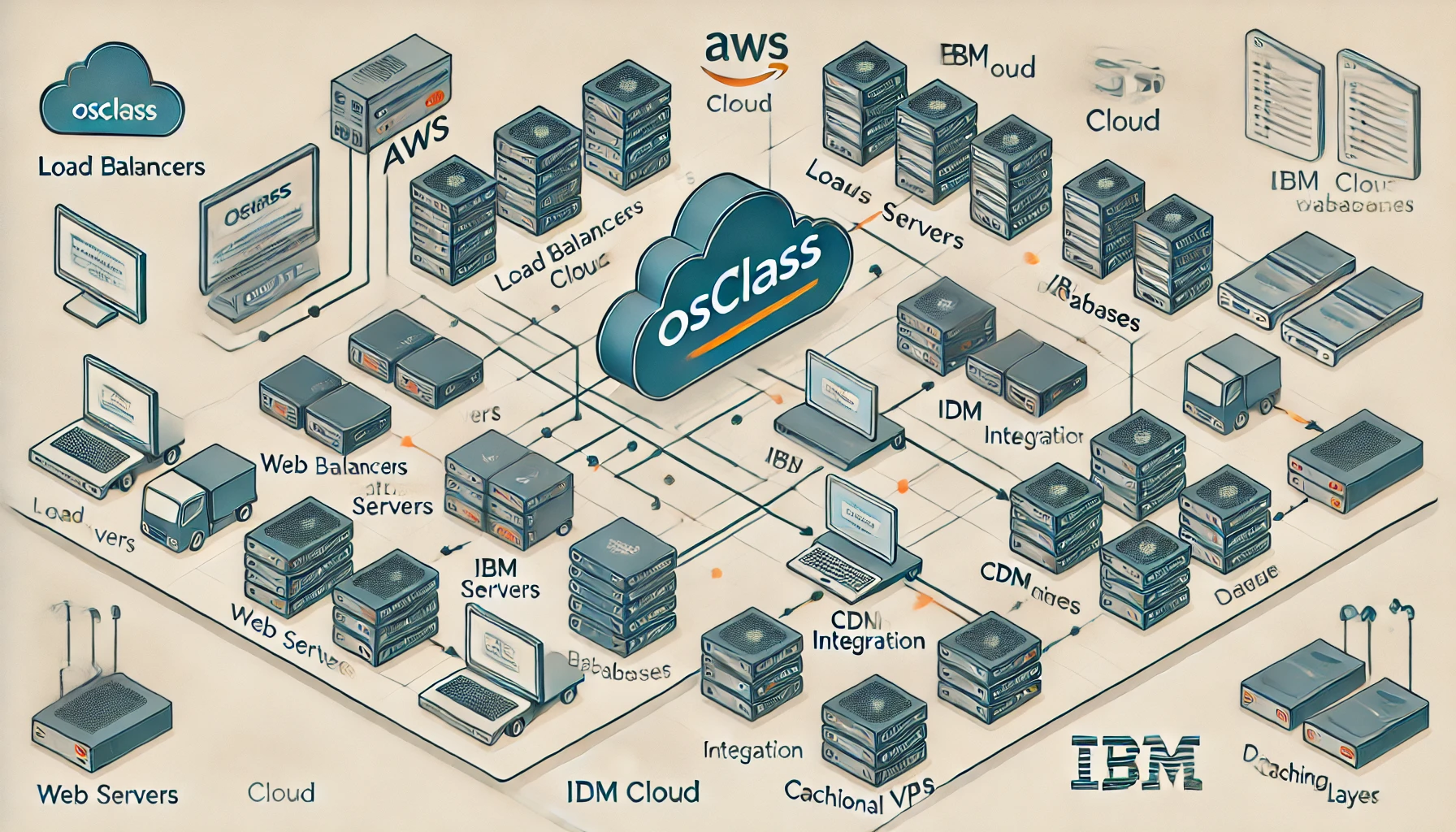Osclass is a powerful open-source classifieds script used to create online marketplace platforms. When it comes to hosting an Osclass-based website, choosing the right deployment environment is crucial for performance, scalability, and cost efficiency. This article will compare cloud services such as AWS and IBM Cloud with traditional Virtual Private Server (VPS) hosting for deploying Osclass, covering deployment options, performance considerations, and architectural differences.
1. Overview of Deployment Options
The main deployment environments for Osclass are:
- AWS (Amazon Web Services): Offers a wide range of cloud computing services, including EC2 (virtual servers), RDS (managed databases), S3 (storage), and CloudFront (CDN).
- IBM Cloud: Provides various services like IBM Cloud Virtual Servers, IBM Cloud Databases, and Cloud Object Storage.
- Traditional VPS: A virtual private server where users manage the server environment, typically including LAMP (Linux, Apache, MySQL, PHP) stack for hosting.
2. Cloud Services Architecture for Osclass
Deploying Osclass on cloud services like AWS and IBM Cloud involves multiple components for a scalable and high-performance architecture. Below is a diagram illustrating the architecture:

The architecture includes the following components:
- Load Balancers: Distribute incoming traffic across multiple web server instances to ensure high availability and reliability.
- Web Servers: Host the Osclass application. Multiple instances can be used to handle increased traffic.
- Database Servers: Typically involve managed services like Amazon RDS or IBM Cloud Databases for enhanced performance and automated maintenance.
- Content Delivery Network (CDN): Services like AWS CloudFront or IBM Cloud CDN can accelerate content delivery by caching static assets closer to users.
- Caching Layers: Using services like Redis or Memcached can significantly improve performance by caching frequently accessed data.
3. Deployment Options on AWS
To deploy Osclass on AWS, you can use the following services:
- EC2 (Elastic Compute Cloud): Create virtual server instances to host the Osclass application. You can choose different instance types based on your performance requirements.
- RDS (Relational Database Service): Use Amazon RDS to host the MySQL database for Osclass, which offers automated backups, scaling, and maintenance.
- S3 (Simple Storage Service): Store media files such as images and documents. Integrate with CloudFront for faster content delivery.
- Elastic Load Balancing: Distribute incoming requests across multiple EC2 instances to improve fault tolerance.
- AWS Auto Scaling: Automatically scale the number of instances based on traffic demand.
4. Deployment Options on IBM Cloud
IBM Cloud provides similar services to AWS for deploying Osclass:
- IBM Cloud Virtual Servers: Deploy virtual machines with custom configurations to host the Osclass application.
- IBM Cloud Databases: Use managed database services for MySQL, with automated scaling and maintenance features.
- Cloud Object Storage: Store static files and integrate with IBM Cloud CDN for accelerated delivery.
- IBM Cloud Load Balancer: Distribute traffic across multiple instances to ensure high availability.
5. Traditional VPS Deployment
With a traditional VPS, you manually configure the server environment for hosting Osclass:
- LAMP Stack: Install and configure Apache, MySQL, and PHP for the Osclass environment.
- Manual Scaling: You need to manually upgrade server resources if the traffic increases.
- Limited Automation: Tasks like database backups, server updates, and security patches are managed manually.
6. Performance Comparison
| Criteria |
AWS |
IBM Cloud |
VPS |
| Scalability |
Highly scalable with auto-scaling |
Scalable with auto-scaling support |
Limited to server resources |
| Ease of Management |
Managed services reduce maintenance |
Managed services reduce maintenance |
Manual management required |
| Performance |
High with CDN and caching |
High with CDN and caching |
Depends on server configuration |
| Cost |
Pay-per-use, scalable costs |
Pay-per-use, scalable costs |
Fixed cost, less scalable |
| Security |
Advanced security features available |
Advanced security features available |
Requires manual security configuration |
7. Best Practices for Deploying Osclass on Cloud Services
- Use a CDN: Integrate a CDN to cache static content and reduce load on your web servers.
- Enable Caching: Use caching mechanisms such as Redis or Memcached to improve database performance.
- Automate Backups: Set up automated backups for the database and file storage to ensure data recovery.
- Monitor Performance: Use monitoring tools to track server performance, detect bottlenecks, and scale resources as needed.
- Secure the Environment: Implement security best practices such as using firewalls, secure connections (HTTPS), and regular software updates.
Conclusion
Deploying Osclass on cloud services like AWS or IBM Cloud offers significant benefits in terms of scalability, performance, and management. While traditional VPS can be suitable for small-scale deployments, cloud-based solutions provide advanced features that are essential for handling high traffic and ensuring high availability. By following best practices and leveraging cloud services effectively, you can optimize the performance and cost-efficiency of your Osclass website.
